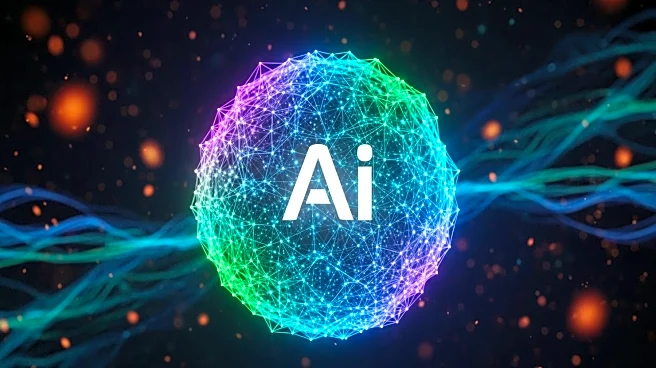What's Happening?
Anthropic has introduced Claude Haiku 4.5, a new artificial intelligence model that promises to be smaller, faster, and more cost-effective than its predecessors. This model is designed to serve as a viable
alternative to the Claude Sonnet 4, offering comparable performance at a significantly reduced cost and increased speed. Claude Haiku 4.5 matches the coding capabilities of OpenAI's GPT-5 and is optimized for easy deployment across various AI applications. It is available for free under all of Anthropic's plans, making it accessible to a broad spectrum of users. The model is expected to enhance AI production environments, particularly in software development tools where latency is a critical factor.
Why It's Important?
The launch of Claude Haiku 4.5 by Anthropic represents a significant advancement in AI technology, particularly in terms of accessibility and efficiency. By offering a model that is both cost-effective and fast, Anthropic is likely to influence the competitive landscape of AI development, challenging established models like OpenAI's GPT-5. This development could democratize access to advanced AI tools, enabling smaller companies and individual developers to leverage high-performance AI without prohibitive costs. The implications for industries reliant on AI, such as software development, are substantial, potentially accelerating innovation and reducing operational costs.
What's Next?
With the introduction of Claude Haiku 4.5, Anthropic may see increased adoption of its AI models across various sectors. The model's accessibility and performance could lead to broader integration into software development environments, enhancing productivity and innovation. As more users deploy Claude Haiku 4.5, feedback and real-world application data will likely inform future iterations and improvements. Additionally, competitors in the AI space may respond by enhancing their offerings to maintain market share, potentially leading to further advancements in AI technology.
Beyond the Headlines
The release of Claude Haiku 4.5 could have deeper implications for the AI industry, including ethical considerations around AI accessibility and the potential for increased automation. As AI becomes more integrated into everyday applications, discussions around responsible use and the impact on employment may gain prominence. Furthermore, the model's efficiency could contribute to reducing the environmental footprint of AI operations, aligning with broader sustainability goals.











